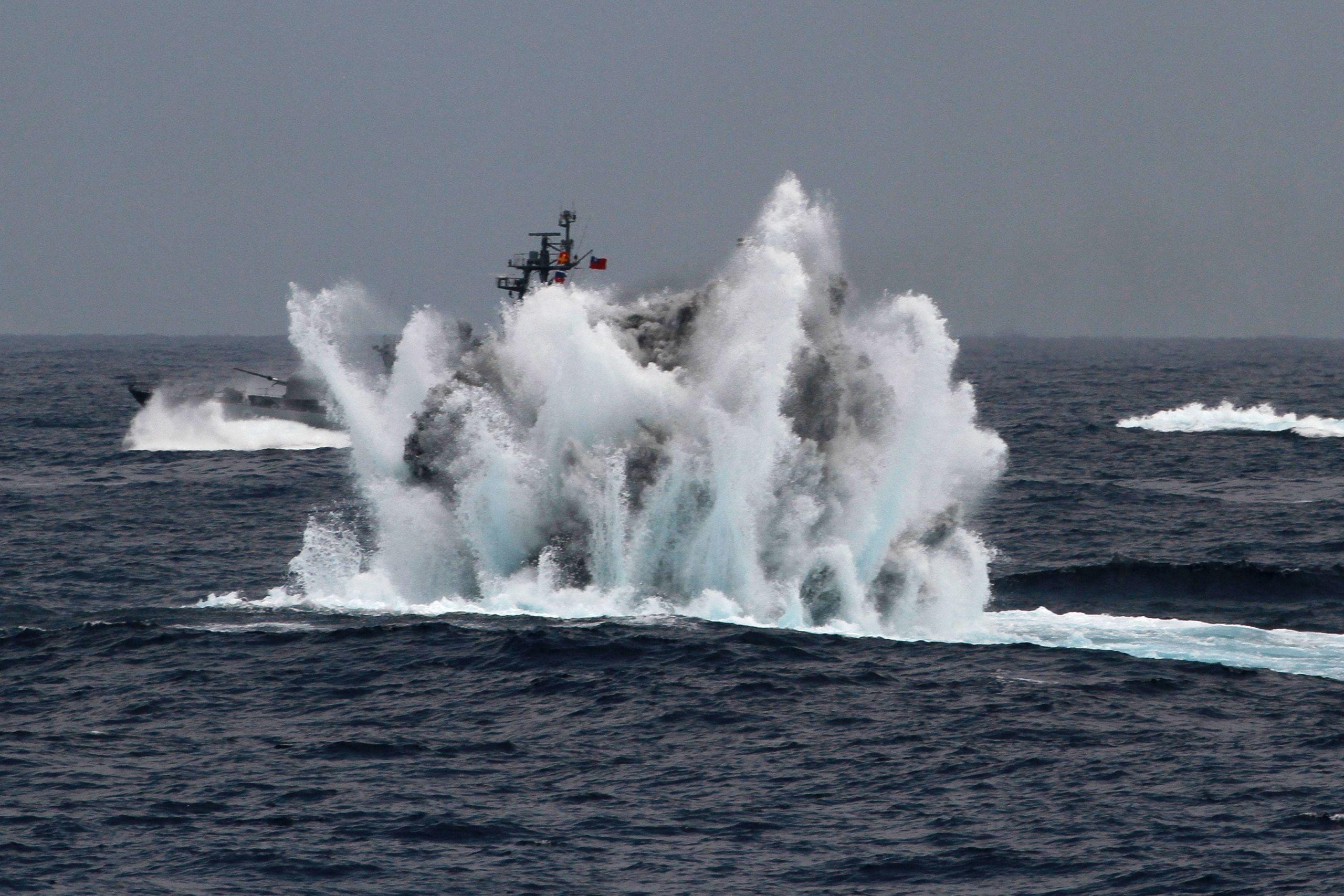
Frigates simulate destroying an enemy submarine with depth charges during a live-fire drill at sea … [+]
I usually go through a rhythm of reading one or two serious books, followed by a few works of fiction and with summer on the way I wanted to highlight a few of both. In that regard I have just finished Laurence Durrell’s ‘White Eagles in Serbia’, an old-fashioned espionage thriller where the hero Colonel Methuen is dropped behind enemy lines in post war Serbia (he speaks excellent Serbo-Croat) and becomes embroiled in a violent plot to overthrow Tito.
The book is a warm-up to reading Durrell’s ‘The Alexandria Quartet’, a work that nearly won him the Nobel Prize. Durrell was part of an interesting Anglo-Irish family, who largely considered themselves Indian – his brother Gerald, the naturalist and writer, touches on this in ‘My Family and Other Animals’.
Thrillers
Though I am not an expert on these matters, I found ‘White Eagles’ a more realistic account of espionage than much of what we see in the media today (Mick Herron’s ‘Slow Horses’ is good), and overall it is a tale of derring-do that is more in keeping with the work of the founding fathers of the genre – Eric Ambler, John Buchan, Erskine Childers and Ted Allebury for example.
It also made opportune reading given what seems to be an epidemic of espionage – with reports of the Chinese hacking group APT40 using graduates to infiltrate Western corporates and notably the admission by the head of Switzerland’s intelligence that Russian espionage is rife in that country (notably in Geneva – for which readers should consult Somerset Maugham’s ‘Ashenden’ as background material).
These and other trends – such as the outbreak of a heavy cyber battle last week (against Lithuania and Norway for instance) and the increasingly public ‘clandestine’ war between Israel and Iran (they have just sacked their spy chief) point to a world that is ever more contested and complex.
MORE FOR YOU
Secret World
One of the new trends in the space is cyber espionage – both in the sense of stealing state and industrial/corporate secrets, influencing actors (such as the manipulation of the 2016 US Presidential election) and outright acts of hostility such as the hacking of public databases and utilities (i.e. healthcare systems). Here, if readers are looking for some serious literature I can recommend two excellent books – Nicole Perlroth’s ‘This is how they tell me the world ends’ and ‘Secret World’ by Christopher Andrew.
I am personally more intrigued by the difference between a spy and a strategist. A spy’s work could well be described as the pursuit of information about someone who is acting with a specific intent, as well as a sense of their reaction function. There are plenty of examples – from Christine Joncourt (‘La Putain de la Republique’) to Richard Sorge (see Owen Matthews’ ‘An Impeccable Spy’).
In contrast a strategist may try to plot trends and the opportunities, spillovers and damage they may cause. The US National Intelligence department is good in this regard, becoming the first major intelligence agency to publish detailed warnings on the side effects of climate damage.
Spies and strategists might work together, but history is full of examples (LC Moyzisch’s ‘Operation Cicero’) where intelligence fails to make it through the strategic process or is simply ignored for political reasons (might the early warnings on the invasion of Ukraine be an example).
Asia next?
In the spirit of the Durrells and Flemings of the world, what issues might be of interest in terms of digging into unknown knowns and unknown unknowns. Here are a few ideas, most of which are Asia focused (we might see an uptick in Asia focused thrillers).
On the diplomatic front, an interesting recent development was the visit of Indonesian president Joko Widodo to Ukraine, and then Moscow. It was a rare visit to Ukraine by an Asian leader and potentially marks the emergence or at least aspiration of Indonesia (population 273 million) as an emerging world diplomatic player. What has intrigued me so far is that there has been little coordination by the populous emerging (largely Muslim) nations (Nigeria, Indonesia, Pakistan) in the face of high energy and food prices, and that potentially Widodo could play a unifying role here.
Then, still in Asia, but on a more deadly footing, if the Western commentariat is to be believed, China is preparing an assault on Taiwan, and looking to learn from Russia’s military errors in this regard. Other countries are reacting, and I suspect that there will be much intrigue around Taiwan’s ability to acquire sufficiently powerful ballistic missiles that could strike the coastal cities of China, and relatedly how long might it take Japan to produce nuclear missiles (my sources say they could very ambitiously do it in five months!).
So, whilst the espionage literature of the 20th century has tended to be focused on Geneva, Berlin and London in the 21st century we may find ourselves reading about ‘behind the lines’ exploits in Jakarta and Tanegashima.







